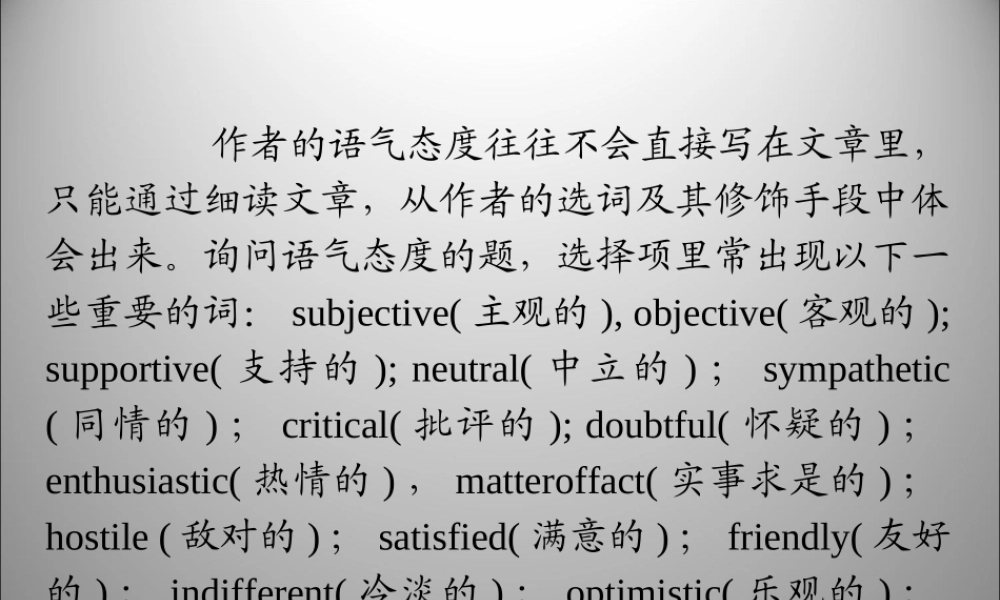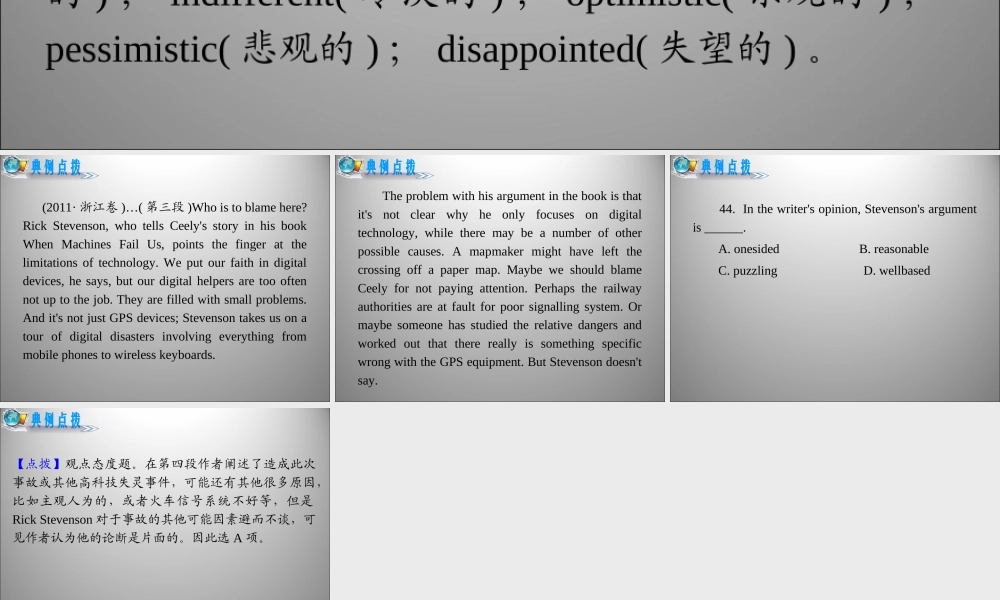1 作者的语气态度往往不会直接写在文章里,只能通过细读文章,从作者的选词及其修饰手段中体会出来。询问语气态度的题,选择项里常出现以下一些重要的词: subjective( 主观的 ), objective( 客观的 ); supportive( 支持的 ); neutral( 中立的 ) ; sympathetic( 同情的 ) ; critical( 批评的 ); doubtful( 怀疑的 ) ;enthusiastic( 热情的 ) , matter of fact( 实事求是的 ) ;hostile ( 敌对的 ) ; satisfied( 满意的 ) ; friendly( 友好的 ) ; indifferent( 冷淡的 ) ; optimistic( 乐观的 ) ;pessimistic( 悲观的 ) ; disappointed( 失望的 ) 。 2 (2011· 浙江卷 )…( 第三段 )Who is to blame here? Rick Stevenson, who tells Ceely's story in his book When Machines Fail Us, points the finger at the limitations of technology. We put our faith in digital devices, he says, but our digital helpers are too often not up to the job. They are filled with small problems. And it's not just GPS devices; Stevenson takes us on a tour of digital disasters involving everything from mobile phones to wireless key boards.3 The problem with his argument in the book is that it's not clear why he only focuses on digital technology, while there may be a number of other possible causes. A map maker might have left the crossing off a paper map. Maybe we should blame Ceely for not paying attention. Perhaps the railway authorities are at fault for poor signalling system. Or maybe someone has studied the relative dangers and worked out that there really is something specific wrong with the GPS equipment. But Stevenson doesn't say. …4 44. In the writer's opinion, Stevenson's argument is ______. A. one sided B. reasonable C. puzzling D. well based5【点拨】观点态度题。在第四段作者阐述了造成此次事故或其他高科技失灵事件,可能还有其他很多原因,比如主观人为的,或者火车信号系统不好等,但是Rick Stevenson 对于事故的其他可能因素避而不谈,可见作者认为他的论断是片面的。因此选 A 项。


